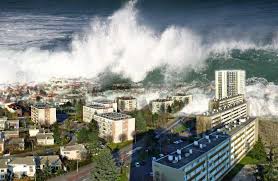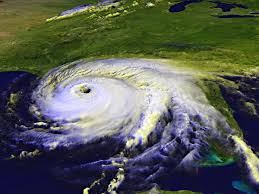Choose one topic that has to do with waves on Earth: Hurricanes, tsunamis, or Earthquakes.

Your task is to write an informational blog post of 600-2000 words in length about one of these topics and connect it to what you have been learning about waves and how they work.

Points of discussion, but not limited to:
What is it?
Why/How does it occur?
Where do they mostly occur?
What are the effects of it?
How can science help to predict, or keep us safe from these natural disturbances in the Earth's crust, ocean's and atmosphere? (Remember choose only one of the above topics)
What warning systems are in place?
What are the benefits or limitations of them?
Are there other issues that cause problems or interfere with have good safety features or warning systems set up like economics, environment, politics...?
I CAN'T WAIT TO READ WHAT YOU FIND OUT!!!!

Websites you could use for reliable information:
Southern California Earthquake Center (SCEC). (2007). Animations and movies. Retrieved from:http://www.scec.org/resources/movies.html
YouTube video on Japan Earthquake Animation of Foreshocks, mainshock and Aftershocks!
http://www.youtube.com/watch?v=dpOI8vkJ-G4&feature=related
YouTube video on How tsunamis relate to Earthquakes! Good one.
http://www.youtube.com/watch?v=chbbiSCczB8&feature=related
YouTube video on Hurricane Katrina Historic Storm Surge. These guys are crazy!
http://www.youtube.com/watch?v=-Kou0HBpX4A&feature=related
USGS (United States Geological Survey) and Science Education
http://www.usgs.gov
http://earthquake.usgs.gov/learn/animations/
Animation of Tsunamis
http://www.iris.edu/hq/files/programs/education_and_outreach/aotm/interactive/PNW_vs_Japan.swf
Provincial Emergency Program (PEP). (n.d.). Tsunami animation. Retrieved from: http://www.pep.bc.ca/tsunamis/causes_2.htm
Milliner, J., & McDaris, J. (2011). Hurricane visualization. Retrieved from:http://serc.carleton.edu/NAGTWorkshops/hurricanes/visualizations/hurricanes.html
Your task is to write an informational blog post of 600-2000 words in length about one of these topics and connect it to what you have been learning about waves and how they work.
Points of discussion, but not limited to:
What is it?
Why/How does it occur?
Where do they mostly occur?
What are the effects of it?
How can science help to predict, or keep us safe from these natural disturbances in the Earth's crust, ocean's and atmosphere? (Remember choose only one of the above topics)
What warning systems are in place?
What are the benefits or limitations of them?
Are there other issues that cause problems or interfere with have good safety features or warning systems set up like economics, environment, politics...?
I CAN'T WAIT TO READ WHAT YOU FIND OUT!!!!
Websites you could use for reliable information:
Southern California Earthquake Center (SCEC). (2007). Animations and movies. Retrieved from:http://www.scec.org/resources/movies.html
YouTube video on Japan Earthquake Animation of Foreshocks, mainshock and Aftershocks!
http://www.youtube.com/watch?v=dpOI8vkJ-G4&feature=related
YouTube video on How tsunamis relate to Earthquakes! Good one.
http://www.youtube.com/watch?v=chbbiSCczB8&feature=related
YouTube video on Hurricane Katrina Historic Storm Surge. These guys are crazy!
http://www.youtube.com/watch?v=-Kou0HBpX4A&feature=related
USGS (United States Geological Survey) and Science Education
http://www.usgs.gov
http://earthquake.usgs.gov/learn/animations/
Animation of Tsunamis
http://www.iris.edu/hq/files/programs/education_and_outreach/aotm/interactive/PNW_vs_Japan.swf
Provincial Emergency Program (PEP). (n.d.). Tsunami animation. Retrieved from: http://www.pep.bc.ca/tsunamis/causes_2.htm
Milliner, J., & McDaris, J. (2011). Hurricane visualization. Retrieved from:http://serc.carleton.edu/NAGTWorkshops/hurricanes/visualizations/hurricanes.html